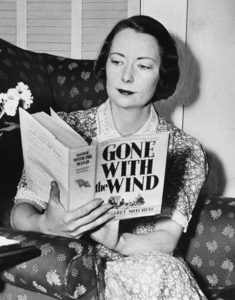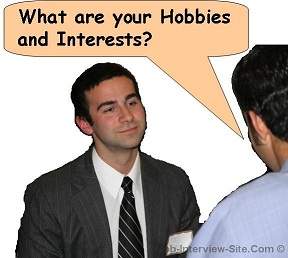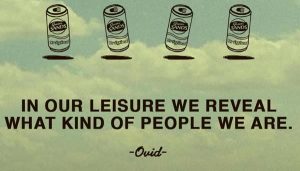We practically lead our life like a robot, managing and working our days in pace with ticking of clock. Our day is packed with unending activities from the moment we get out of bed in the morning till we go back to bed in night. Do we make time for enjoyable activities? If yes, it’s great if no, stop and think about it for a while; and make up your mind to pursue your hobby.
 Having a hobby is very important for leading a well-balanced life. In today’s hectic world we are extremely busy and stressful – left with hardly any time for leisure and recreation. And if we manage to find some free time, we waste it worrying and taking tensions on variety of issues – some dim and some grim. If that’s not enough, we engage in gossiping about somebody, or we just laze around, in short, we are unable to find a creative activity in which we can engage our minds. Cultivating a hobby is significant to help us lead a contented life. A hobby is essentially an activity that we can do in our free time, so that we can engage ourselves in something that makes us blissful. Engaging in a hobby can help relieve stress and lighten our moods.
Having a hobby is very important for leading a well-balanced life. In today’s hectic world we are extremely busy and stressful – left with hardly any time for leisure and recreation. And if we manage to find some free time, we waste it worrying and taking tensions on variety of issues – some dim and some grim. If that’s not enough, we engage in gossiping about somebody, or we just laze around, in short, we are unable to find a creative activity in which we can engage our minds. Cultivating a hobby is significant to help us lead a contented life. A hobby is essentially an activity that we can do in our free time, so that we can engage ourselves in something that makes us blissful. Engaging in a hobby can help relieve stress and lighten our moods.
Different people engage in different kinds of hobbies. Each one has their personal likes and dislikes. Someone may likes gardening, some may like stamp collection, someone may like writing, or some may go shopping for antiques. This is worth knowing that the best of work – be it a recipe, be it a painting, a song, a poetry – the most valued works of art have been credited to those people who were, in fact, just fostering their favorite hobbies. Hobbies indeed lead the hobbyist to become a skilled professional. Do you know Margret Mitchell wrote “Gone with the wind” to kill her boredom. Mitchell was a journalist for the Atlanta Journal Sunday Magazine; she took a leave to recover from a series of injuries, including a recurring ankle injury. When the ankle proved slow to heal this time, she decided to occupy herself by writing. Mitchell spent almost a decade 1926 – 1936 to complete the classic. Mitchell married thrice in her life; the third time she married a man who shared her interest in writing and literature. Rest is the story. It’s been proved universally, people tend to marry partners who share their interests.
 Carol Kauffman, an assistant clinical professor at Harvard Medical School says that hobbies can enhance the hobbyist’s creativity; it helps to think more clearly and sharpen the focus. She says that when you’re really engaged in a hobby you love, you lose your sense of time and enter what’s called a flow state, and that restores your mind and energy. In a flow state, you are completely swamped in an experience, requiring a high level of concentration. Research shows strong correlations between flow states and peak performance. And hence the best of arts are created by hobbyists who pursued their instincts. Hobbies allow people to concentrate on their work while fully immersed in a feeling of energized focus, full involvement, and enjoyment in the process of the activity. In essence, flow is characterized by complete absorption in what one does.
Carol Kauffman, an assistant clinical professor at Harvard Medical School says that hobbies can enhance the hobbyist’s creativity; it helps to think more clearly and sharpen the focus. She says that when you’re really engaged in a hobby you love, you lose your sense of time and enter what’s called a flow state, and that restores your mind and energy. In a flow state, you are completely swamped in an experience, requiring a high level of concentration. Research shows strong correlations between flow states and peak performance. And hence the best of arts are created by hobbyists who pursued their instincts. Hobbies allow people to concentrate on their work while fully immersed in a feeling of energized focus, full involvement, and enjoyment in the process of the activity. In essence, flow is characterized by complete absorption in what one does.
 Dr. Gabriela Corá, a psychiatrist who is managing partner of the Florida Neuroscience Center and president of Executive Health and Wealth Institute, an executive coaching firm in Miami says that being in that heightened state of concentration raises the levels of neurotransmitters in our brain; this releases chemicals like endorphins, norepinephrine and dopamine which keeps us focused and interested in what we are doing and that energizes a lot. Making time for enjoyable activities stimulates parts of the brain associated with creative and positive thinking. This helps us to become emotionally and intellectually more motivated.
Dr. Gabriela Corá, a psychiatrist who is managing partner of the Florida Neuroscience Center and president of Executive Health and Wealth Institute, an executive coaching firm in Miami says that being in that heightened state of concentration raises the levels of neurotransmitters in our brain; this releases chemicals like endorphins, norepinephrine and dopamine which keeps us focused and interested in what we are doing and that energizes a lot. Making time for enjoyable activities stimulates parts of the brain associated with creative and positive thinking. This helps us to become emotionally and intellectually more motivated.
A hobby, as expressions of one’s passion and creativity, holds a very important place in a person’s life. They are beneficial to the hobbyist in more ways than one. For one, hobbies are those activities which people choose to do, and not which they have to do. There is a lot of difference between wanting to do something and having to do it. Hobbies are about doing those things that we like to do, things that give us pleasure and peace of mind. While pursuing a hobby it is like having an appointment with oneself. This is the time when a person can connect and communicate with the self. In this private time, a person can do whatever he/she likes. This gives us immense inner satisfaction which enhances self-confidence.
 There are varied connections in hobbies and personality. Sometimes your childhood experience affects your adult hood. I have seen some young adults who became boxers and took to karate because they were bullied in their childhood. Sometimes a person develops a hobby to protect his/her identity. Some people develop certain hobbies such as video games addiction in order to become in control of the imaginary world; for instance I know of this middle-aged man who is glued to his videogame of fighting terrorists – he has the winner look on his face while playing the game; perhaps gains satisfaction it is his innate desire to fight terrorists. He is quite a loner, perhaps it allows him to connect with rest of the world. And, some people connect to hobby for the sake of nostalgia – to connect to the past. Also, some people develop hobbies to channelize their emotions. I have seen people learning music in their forties and fifties to get over emotional turmoils such as a broken marriage, losing a job, losing a close one.
There are varied connections in hobbies and personality. Sometimes your childhood experience affects your adult hood. I have seen some young adults who became boxers and took to karate because they were bullied in their childhood. Sometimes a person develops a hobby to protect his/her identity. Some people develop certain hobbies such as video games addiction in order to become in control of the imaginary world; for instance I know of this middle-aged man who is glued to his videogame of fighting terrorists – he has the winner look on his face while playing the game; perhaps gains satisfaction it is his innate desire to fight terrorists. He is quite a loner, perhaps it allows him to connect with rest of the world. And, some people connect to hobby for the sake of nostalgia – to connect to the past. Also, some people develop hobbies to channelize their emotions. I have seen people learning music in their forties and fifties to get over emotional turmoils such as a broken marriage, losing a job, losing a close one.
 Don’t ignore mentioning about your hobbies in the resume. Hobbies offer a window to your personality. Imagine, if you are applying for the post of technical writer. This job requires many hours working in front of computer and it is purely a desk job. And in your resume you mention your hobbies including boating, water sports and trekking. Don’t worry about mentioning about your hobbies truthfully; these hobbies don’t say that you are not fit for the desk job, just because you are interested in outdoor activities. In fact you stand better chance to lap the job. It shoes your liveliness, your go-getting propensity and your zeal. I have seen this; people don’t pay attention to their hobby section in their CV at all. Such CVs look bland and uninteresting. However well qualified and experienced the person might be; but if the CV does not cover hobbies and interests it does not express a wholesome picture of the applicant.
Don’t ignore mentioning about your hobbies in the resume. Hobbies offer a window to your personality. Imagine, if you are applying for the post of technical writer. This job requires many hours working in front of computer and it is purely a desk job. And in your resume you mention your hobbies including boating, water sports and trekking. Don’t worry about mentioning about your hobbies truthfully; these hobbies don’t say that you are not fit for the desk job, just because you are interested in outdoor activities. In fact you stand better chance to lap the job. It shoes your liveliness, your go-getting propensity and your zeal. I have seen this; people don’t pay attention to their hobby section in their CV at all. Such CVs look bland and uninteresting. However well qualified and experienced the person might be; but if the CV does not cover hobbies and interests it does not express a wholesome picture of the applicant.
Even when people are asked about their hobbies in face-to-face interviews, some of them give a blank look. Let’s get it right – hobbies perk up a potential employer’s interest in you. A piece of advice – please doesn’t lie. Do not highlight hobbies you don’t have. Before you go any further, you will get caught. Interviewers can easily make out whether you are talking truth or not. Of course, sometimes the hobbies of a person do suit his job profile. If you are keen to make a career in a particular area, you might as well tailor your hobbies for suitability.
 Finally, the secret key for leading a successful life lies in doing things which you enjoy the most. With that keen power of interest, you will then gain wealth, good health, happiness and fame as well, so pursue your hobbies.
Finally, the secret key for leading a successful life lies in doing things which you enjoy the most. With that keen power of interest, you will then gain wealth, good health, happiness and fame as well, so pursue your hobbies.













































